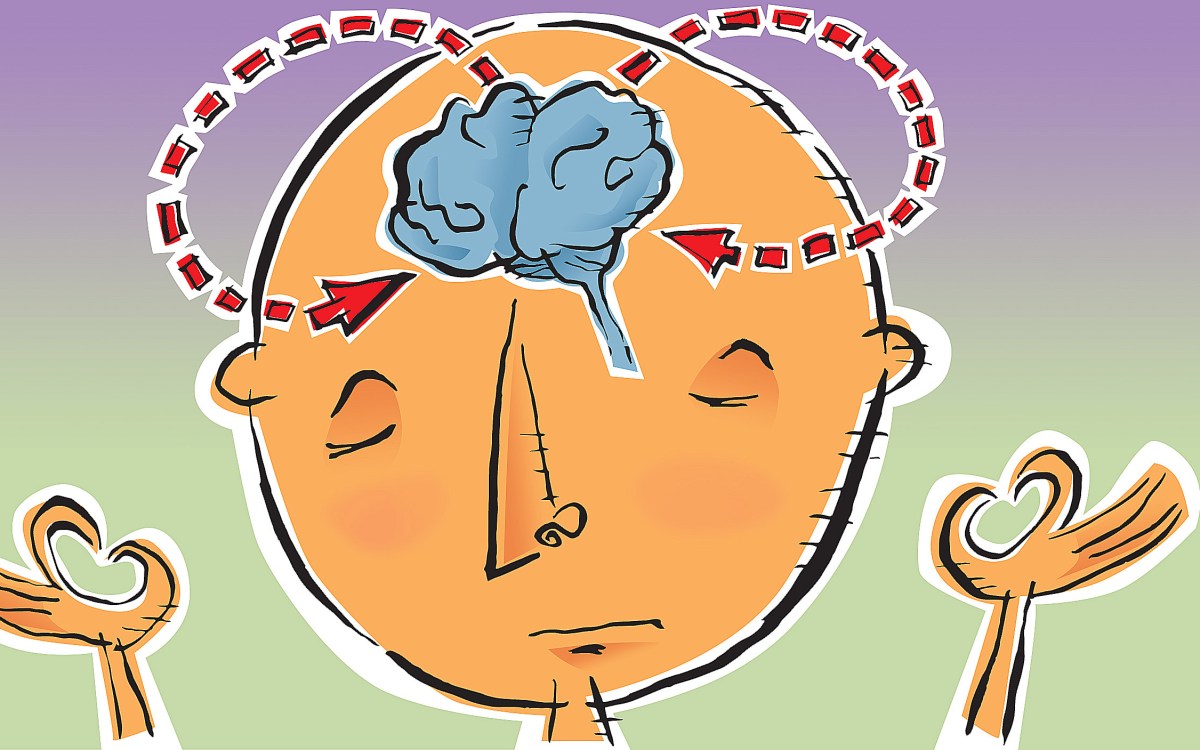
Being good for goodness’ sake — and your own
Research finds health benefits in high moral character
Being good is good for you, say the authors of research that explored the role of character in physical and mental health. In a study of more than 1,200 U.S. adults, a team of researchers from Harvard’s Human Flourishing Program and the SHINE program at Harvard Chan School found that acting with high moral character is associated with a lower risk of depression — and may have cardiovascular benefits as well. We spoke with Dorota Weziak-Bialowolska, a co-author of the findings, about the results. The interview was edited for clarity and length.
Q&A
Dorota Weziak-Bialowolska
GAZETTE: What is moral character?
WEZIAK-BIALOWOLSKA: We define it as adherence to high standards of moral behaviors and acting in a way which contributes to the good of oneself and others. So it’s reflected in excellent character, but also in an orientation to promote good and engaging in good deeds, even in difficult or challenging situations.
GAZETTE: How did you measure character?
WEZIAK-BIALOWOLSKA: We asked people to assess themselves in five dimensions: “I always act to promote good in all circumstances, even in difficult and challenging situations”; “I always know what is the right thing to do”; “I always treat everyone with kindness”; “I am always able to give up some happiness now for greater happiness later”; and “I use my strength to help others.”
GAZETTE: Wouldn’t everyone answer these questions to make themselves look good?
WEZIAK-BIALOWOLSKA: You’ll notice we didn’t ask directly: “Are you a good person?” The overall well-being assessment consists of 40 items, and we collected this data in two waves, so we were able to account for reporting bias. Especially when you do a longitudinal study, you account for this bias because it’s present always.
GAZETTE: What are the main takeaways from the paper?
WEZIAK-BIALOWOLSKA: For us, the aim was to look for unconventional health resources — positive factors that may be influential for health and well-being — and character strength is one example. What was quite interesting was the association between delayed gratification and health outcomes. We found an association with depression, but also with anxiety and cardiovascular disease. In health studies we know that delayed gratification is good. When you think about health behaviors like smoking or drinking, if you can refrain from them, you can expect that it will be good for you. But we asked about the statement: “I am always able to give up some happiness now for greater happiness later.” There was no direct indication to health. It was about happiness, something abstract, but we found an association with health outcomes.
We were looking for a recommendation for public health policies. The takeaway is that character-related policies or interventions may be relevant for population health. It’s also very likely that they would be received well by the population because they are aligned with what most of us want: to become a better person. It was very reassuring for us that we found these associations, and for me, personally. I thought it’s wonderful that when I am a better human being I can contribute to the better well-being of others, but also, maybe, for myself.
GAZETTE: What’s next?
WEZIAK-BIALOWOLSKA: Both the Human Flourishing Program and SHINE have plans to examine a very particular aspect of moral character, an orientation to promote good in other populations. Our interest in particular is in post-conflict populations. We’ve already collected data on this aspect of moral character and some health outcomes and well-being outcomes in South Africa, Indonesia, Sri Lanka, and Colombia.
Another project happening right now is the Global Flourishing Study, which is a joint program of the Harvard Human Flourishing Program, Baylor University, the Gallup Organization, and the Center for Open Science. The idea is to examine more than 200,000 individuals from more than 20 countries and to examine more long-term association between different aspects of moral character and health and well-being outcomes. In our study we found associations between moral character and mental health one year after. The Global Flourishing Study will last five years, and we will be able to see if the associations are present even after five years. It’s quite an exciting prospect.








